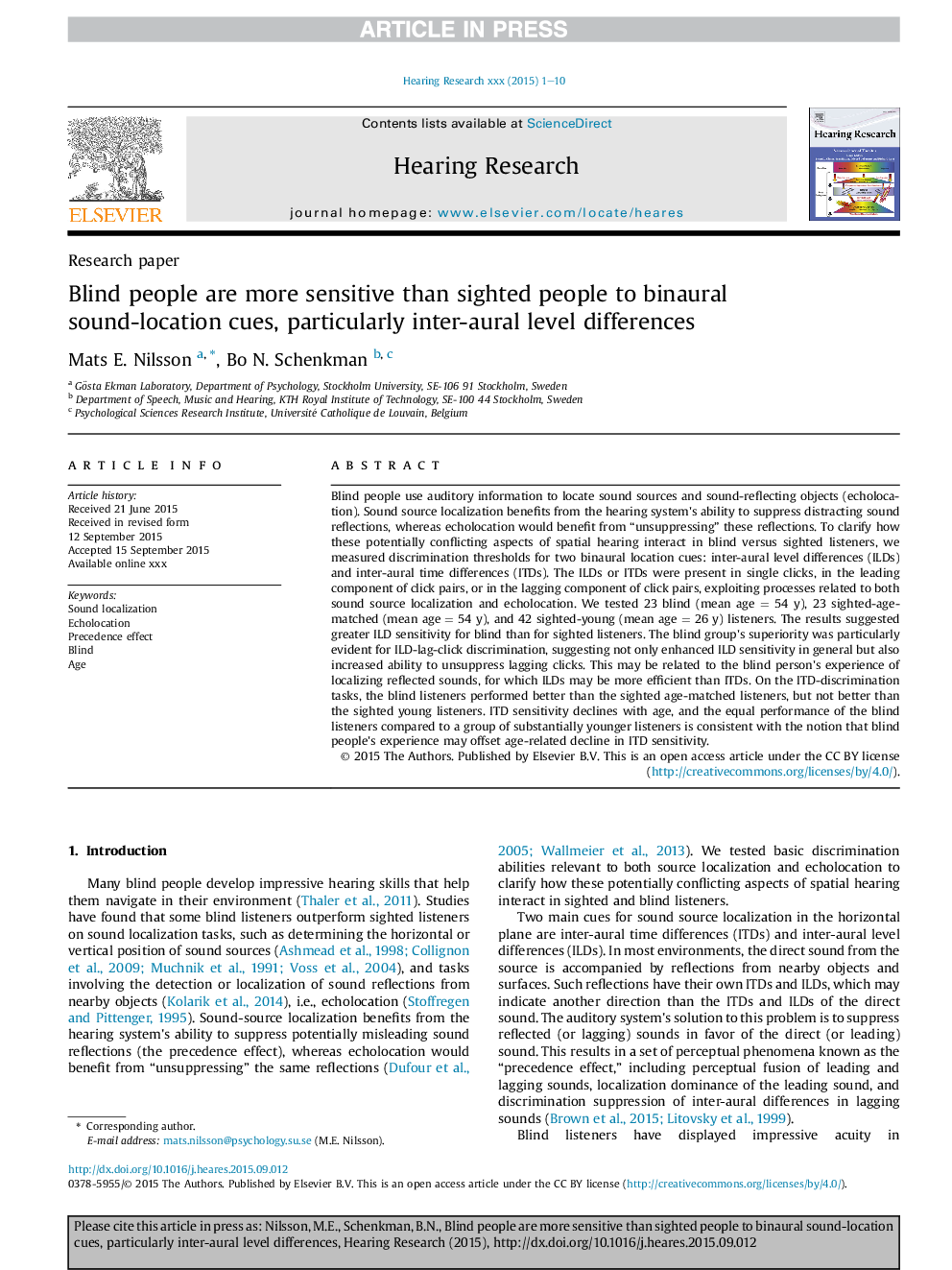| کد مقاله | کد نشریه | سال انتشار | مقاله انگلیسی | نسخه تمام متن |
|---|---|---|---|---|
| 6287161 | 1615568 | 2016 | 10 صفحه PDF | دانلود رایگان |
عنوان انگلیسی مقاله ISI
Blind people are more sensitive than sighted people to binaural sound-location cues, particularly inter-aural level differences
ترجمه فارسی عنوان
افراد نابینا نسبت به افراد بینایی حساسیت بیشتری نسبت به نشانه های مکانیزم شنوایی، بویژه اختلاف سطح بینایی دارند
دانلود مقاله + سفارش ترجمه
دانلود مقاله ISI انگلیسی
رایگان برای ایرانیان
کلمات کلیدی
محلی سازی صدا، تماشای، اثر اولویت، کور، سن،
موضوعات مرتبط
علوم زیستی و بیوفناوری
علم عصب شناسی
سیستم های حسی
چکیده انگلیسی
Blind people use auditory information to locate sound sources and sound-reflecting objects (echolocation). Sound source localization benefits from the hearing system's ability to suppress distracting sound reflections, whereas echolocation would benefit from “unsuppressing” these reflections. To clarify how these potentially conflicting aspects of spatial hearing interact in blind versus sighted listeners, we measured discrimination thresholds for two binaural location cues: inter-aural level differences (ILDs) and inter-aural time differences (ITDs). The ILDs or ITDs were present in single clicks, in the leading component of click pairs, or in the lagging component of click pairs, exploiting processes related to both sound source localization and echolocation. We tested 23 blind (mean age = 54 y), 23 sighted-age-matched (mean age = 54 y), and 42 sighted-young (mean age = 26 y) listeners. The results suggested greater ILD sensitivity for blind than for sighted listeners. The blind group's superiority was particularly evident for ILD-lag-click discrimination, suggesting not only enhanced ILD sensitivity in general but also increased ability to unsuppress lagging clicks. This may be related to the blind person's experience of localizing reflected sounds, for which ILDs may be more efficient than ITDs. On the ITD-discrimination tasks, the blind listeners performed better than the sighted age-matched listeners, but not better than the sighted young listeners. ITD sensitivity declines with age, and the equal performance of the blind listeners compared to a group of substantially younger listeners is consistent with the notion that blind people's experience may offset age-related decline in ITD sensitivity.
ناشر
Database: Elsevier - ScienceDirect (ساینس دایرکت)
Journal: Hearing Research - Volume 332, February 2016, Pages 223-232
Journal: Hearing Research - Volume 332, February 2016, Pages 223-232
نویسندگان
Mats E. Nilsson, Bo N. Schenkman,
